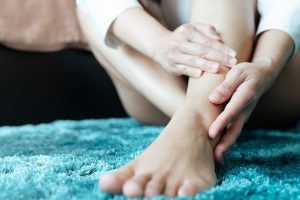 July is Juvenile Arthritis Awareness Month. Arthritis isn’t just an older person’s disease. Children can suffer from it as well.
July is Juvenile Arthritis Awareness Month. Arthritis isn’t just an older person’s disease. Children can suffer from it as well.
Juvenile arthritis or pediatric rheumatic disease is an umbrella term that describes the inflammatory and rheumatic diseases that develop in children 16 years and under.
Juvenile idiopathic arthritis (JIA) is an autoimmune disease where the immune system attacks the joints instead of fighting viruses and germs. It is the most common type of arthritis in children.
Other types of juvenile arthritis include:
- Juvenile myositis- is an inflammatory disease that causes muscle weakness. There are two types:
- Juvenile polymyositis
- Juvenile dermatomyositis
- Juvenile lupus- is an autoimmune disease that affects the joints, skin, internal organs, and other areas. The most common form is systemic lupus erythematosus (SLE).
- Juvenile scleroderma- describes a group of conditions that cause the skin to tighten and harden.
- Vasculitis- is a disease that causes inflammation of the blood vessels that can lead to heart complications. According to the Arthritis Foundation, Kawasaki disease and Henoch-Schonlein purpura (HCP) are the most common vasculitis in kids and teens.
- Fibromyalgia- is a chronic pain syndrome that causes widespread muscle pain and stiffness. It also causes fatigue, disrupted sleep, and other symptoms. It is more common in girls and rarely diagnosed before puberty.
The symptoms of juvenile arthritis can vary depending on the type. The most common symptoms include:
- Joint pain
- Joint swelling
- Joint stiffness
- Fever, swollen lymph nodes, and rash
It can be difficult to diagnose juvenile arthritis in children because joint pain can be caused by many different problems. Here are some ways it is diagnosed:
- Physical exams
- Blood tests
- Imaging scans
There is no cure for arthritis. However, it can be treated. Treatments include:
- Medications
- Physical or occupational therapies
- Surgery
- Self-care
If you believe your child is experiencing arthritis symptoms, visiting a pediatrician as soon as possible is important. You can schedule an appointment at Forest Hills Pediatric Specialists by calling (718) 704-5020
All content of this newsletter is intended for general information purposes only and is not intended or implied to be a substitute for professional medical advice, diagnosis or treatment. Please consult a medical professional before adopting any of the suggestions on this page. You must never disregard professional medical advice or delay seeking medical treatment based upon any content of this newsletter. PROMPTLY CONSULT YOUR PHYSICIAN OR CALL 911 IF YOU BELIEVE YOU HAVE A MEDICAL EMERGENCY.


